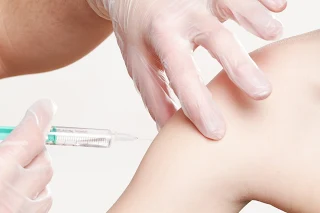After introducing the COVID-19 vaccine, many people experienced side effects, including arm pain and fatigue, headaches, fever, and nausea; then this is a sign that the immune response to the vaccine is breaking down. But some so many people do not experience side effects, the vaccine does not work properly?
Experts say this means that something like this doesn't exist. According to Healthline, if you don't feel lousy after being bitten by one, it's likely that your body has an excellent protective immune response.
In fact, Pfizer conducted a clinical trial that found that 50% of participants experienced any side effects during the study, and 90% developed immunity to the virus. According to a print published by the International Gallery of Modern Art, the vaccine says that side effects can occur to that tenth person in it, but the vaccine protects 95% of those who take the time to watch.
Why do people respond differently to vaccines?
According to Healthline, some people's immune systems respond differently, using some form of physical response to vaccinations. The report says that people may react differently to the vaccine because of many factors, such as health status, age, gender, pre-existing immunity, genetics, nutrition, environment, and anti-inflammatory drugs.
Studies have also shown that exactly when a person has been vaccinated can affect the immune system. Individuals who have previously tested positive for COVID-19 may have a stronger reaction to this medication.
The council's report says that most COVID-a vaccines allow this number by using a viral protein found in the outer shell of the coronavirus, also known as spike protein, to mimic a natural infection and initiate an immune response. The innate immune system, a branch of the immune system that responds directly to the viral spike protein. However, the most visible signs are fever and pain when an infection begins. Innate immune response and causes of side effects that many have experienced after vaccination.
The goal of vaccination is to achieve long-term resistance by activating the second note of the immune response, i.e., adaptive immunity. "The adaptive immune system is activated by components of the innate immune system, and leads to the generation of T cells and antibodies that protect against infection, in the later period of exposure to the virus," the report says. Unlike the innate immune response, adaptive immunity, the ignition is not turned on. For most people who have this inflammatory response, innate and adaptive immune systems have been exaggerated and may be considered a side effect. In the other case, but this is normal, it is not at a level that can lead to any visible side effects. In any case, his immunity against the virus has already been identified.
The Healthline report found that a person's response to vaccinations depends on natural differences in the biochemical composition of the environment and personal history.
Conclusion: Side effects or none, people who have been vaccinated can expect to be protected from the deadly coronavirus by health professionals as well.
